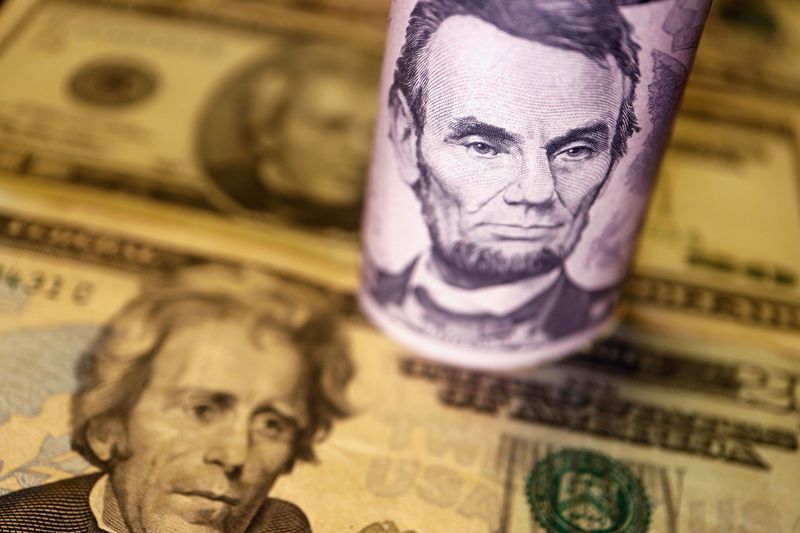By Tom Westbrook
SYDNEY (Reuters) -The dollar held on to its sharpest gain in a week on Wednesday after an Iranian missile attack on Israel encouraged safe asset purchases as investors worried about the spread of conflict in the Middle East.
Moves in Asia were small, although most currencies tried to regain some ground after sharp declines in the previous session.
The euro fell 0.06% to $1.1060, following its biggest drop in almost four months on Tuesday.
The Australian and New Zealand dollars erased early gains to end up 0.06% and 0.25% higher at $0.6887 and $0.6296 respectively.
Yields were further pressured by bets on more aggressive easing by the Reserve Bank of New Zealand (RBNZ) at its meeting next week, with markets pricing an 87% chance of a 50 basis point cut.
Iran said on Wednesday its missile strike on Israel, its largest military assault on the Jewish state, was over unless further provocation, while Israel and the United States vowed to retaliate against Tehran as fears of a wider war grew.
Israel said Iran fired more than 180 ballistic missiles and Iran’s Revolutionary Guards said the attack was in retaliation for Israeli killings of militant leaders and aggression in Lebanon against the Iranian-backed armed movement Hezbollah.
Markets’ reaction to tensions in the Middle East has so far largely focused on oil prices, and ANZ analysts noted that further steps are likely to be determined by Israel’s response and whether the country confronts the Iranian military or will attack the oil industry.
Elsewhere, the security bid kept the Swiss franc steady at 0.8460 per dollar.
Sterling fell 0.11% to $1.3272, while the US dollar rose marginally to 101.27 against a basket of currencies.
Yields rose about 0.5% in the previous session, the biggest gain since September 25, which was also helped by a stronger-than-expected US job postings sentiment.
Westpac strategist Imre Speizer said the Middle East is unpredictable, but in the absence of escalation, market sentiment could recover and focus on the economy again.
In Japan, the yen was 0.14% weaker last year at 143.78 per dollar.
The country’s newly appointed Economy Minister Ryosei Akazawa said on Wednesday that Prime Minister Shigeru Ishiba expects the Bank of Japan to make careful economic assessments when raising interest rates again.
Attention now turns to US private payrolls data due later on Wednesday, with traders also keeping a close eye on a labor dispute at US ports.

Port workers on the East and Gulf coasts began their first large-scale strike in nearly 50 years on Tuesday, halting the flow of about half of the nation’s shipping.
In a nationally televised debate on Tuesday, U.S. Senator JD (NASDAQ:) Vance, chosen by Republican Donald Trump as his vice presidential running mate, faced off against Minnesota Governor Tim Walz, whom Democrat Kamala Harris named its number two, although the The event received a muted response from the market.


